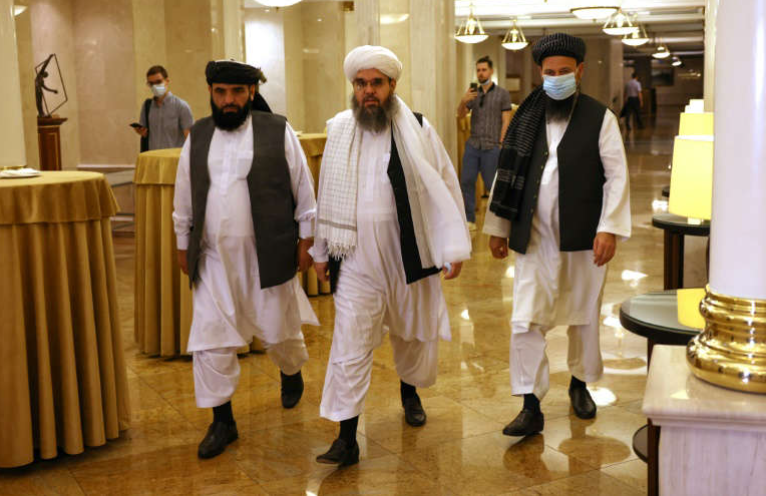Russia will invite the Taliban to international talks on Afghanistan scheduled for October 20 in Moscow, the Kremlin’s envoy to Afghanistan, Zamir Kabulov, said Thursday.
In response to a question from Russian journalists on whether representatives of the hardline group would be invited to negotiations involving China, India, Iran and Pakistan, Kabulov said: “Yes”.
The talks will follow a G20 summit on Afghanistan on October 12 that will seek to help the country avoid a humanitarian catastrophe in the wake of the Taliban takeover.
Kabulov was also asked whether Russia would deliver aid to Afghanistan, where the humanitarian crisis is growing worse, a top UN official warned Wednesday.
Russia would do so, but the details were still being decided, Kabulov said.
“This is being worked out,” he told journalists, saying “cargo” was being collected.
Moscow has moved to engage with the Taliban but stopped short of recognition of the group, which is banned as a terrorist organisation in Russia.
On Monday, Kabulov said Moscow would not “exclude” revising the UN sanctions regime against the Taliban.
“But at this stage we believe it is not expedient to rush,” he said.
The Kremlin has in recent years reached out to the Taliban and hosted its representatives in Moscow several times, most recently in July.
Unlike Western countries that rushed to evacuate diplomats after the Taliban swept to power in August, Russia has kept its embassy in Kabul open.
Russian President Vladimir Putin has criticised the foreign involvement in domestic Afghan affairs and said Moscow had “learnt lessons” from the Soviet Union’s invasion of the country.
In the 1980s, Moscow fought a disastrous decade-long war in Afghanistan that killed up to two million Afghans, forced seven million more from their homes and led to the deaths of more than 14,000 Soviet troops.
Putin has also warned about members of extremist groups exploiting political turmoil in Afghanistan to cross into neighbouring countries as refugees.
In the wake of the Taliban takeover, Russia held military drills with ex-Soviet Tajikistan — where it operates a military base — and in Uzbekistan. Both countries share a border with Afghanistan.
Moscow also said it received orders for new arms and weapons from the Central Asian nations.
While the Taliban has said it does not pose a threat to Central Asian countries, the ex-Soviet republics in the region have previously been targeted by attacks attributed to allies of Afghan Islamists.
The Taliban were initially in power in Afghanistan from 1996 until they were toppled by the 2001 US-led invasion following the September 11, 2001 attacks that were plotted by Al-Qaeda leader Osama bin Laden from Afghan soil.



Comments are closed.